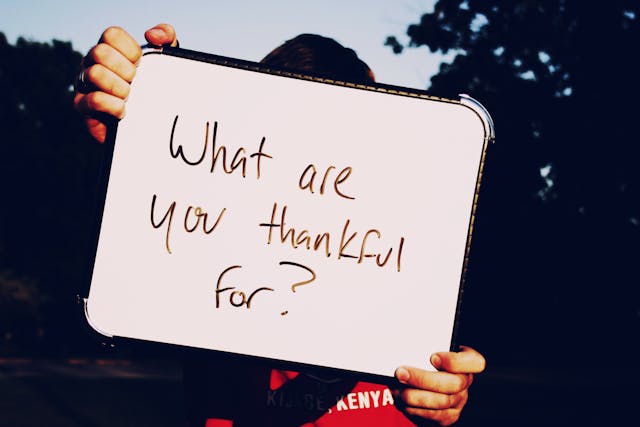The Hormones Made Me Do It

You cried at a commercial. Snapped at your partner over nothing. Bought three tubs of ice cream. Or maybe you found yourself flirting with someone you definitely shouldn’t have. And later, when the dust settled and the guilt kicked in, the only explanation that made sense was:
“The hormones made me do it.”
It sounds like an excuse. A punchline. A way to shift blame.
But here’s the thing: hormones are powerful. And sometimes? They do hijack our behavior.
From the way we eat, sleep, and love—to the way we handle stress, make decisions, and even sabotage ourselves—hormones play a much bigger role in our lives than we think.
So let’s talk about it.
Let’s unpack the science, the stereotypes, and the not-so-crazy truth behind the phrase:
“The hormones made me do it.”
Wait—What Are Hormones, Really?
In simple terms, hormones are chemical messengers.
They travel through your bloodstream and tell your organs, muscles, brain, and body what to do. They control your appetite, mood, sex drive, metabolism, sleep cycles, and emotional responses.
They’re produced by various glands in your body—like the pituitary gland, thyroid, adrenal glands, pancreas, and, yes, the ovaries and testes.
Think of hormones like the behind-the-scenes crew running the show… and you’re the actor on stage wondering why you just burst into tears during brunch.
The Main Culprits (a.k.a. Hormones That Flip the Switch)
Here are some of the most infamous (and powerful) hormones that affect your daily life—often without warning:
- Estrogen & Progesterone
The dynamic duo behind the female reproductive cycle. They fluctuate throughout the month, influencing everything from mood and energy to libido and cravings.
👉 During PMS, estrogen dips and progesterone surges—which is why you might feel bloated, irritable, or emotionally fragile for “no reason.”
- Testosterone
Often labeled the “male hormone,” but women have it too. It fuels libido, competitiveness, confidence, and assertiveness. High levels = bold. Low levels = blah.
👉 Fluctuations in testosterone can make men feel less driven or women feel more emotionally reactive.
- Cortisol
The stress hormone. It’s what kicks in during fight-or-flight moments. Small doses? Necessary. Chronic elevation? Anxiety, fatigue, and emotional burnout.
👉 That meltdown you had after one bad text? Might not be about the text. Might be the cortisol buildup from a stressful week.
- Oxytocin
The love hormone. Released during bonding moments—like hugging, intimacy, or even eye contact. It’s what helps build trust and emotional closeness.
👉 This is why a cuddle can literally change your mood.
- Dopamine & Serotonin
The feel-good chemicals. These affect happiness, focus, motivation, and pleasure. When they’re low? Life feels flat. When they spike? You feel unstoppable.
👉 That impulsive shopping spree? Could be a dopamine chase. That depression fog? Might be low serotonin levels.
You May Like: 15 Secrets To Instantly Boost Your Confidence
How Hormones Hijack Your Behavior (Without You Realizing It)
Let’s go through some real-world examples where hormones might’ve been pulling the strings:
🌀 You Said Something You Didn’t Mean
Snapped during an argument? Ghosted someone you actually liked?
That could be a cortisol and progesterone cocktail causing emotional flooding. When hormones rise, your brain’s logical center (the prefrontal cortex) gets temporarily muted. The emotional brain takes the mic.
🍩 You Ate the Entire Box of Donuts
Hello, ghrelin and leptin—the hunger hormones. Combined with low serotonin or PMS, you’re not just hungry, you’re craving emotional comfort. Sugar becomes therapy. Carbs = calm.
🛑 You Lost Interest in Sex—Or Became Very Interested
Libido is directly tied to hormones like testosterone, estrogen, and oxytocin. If you’re suddenly disinterested or insatiable, it’s not “random.” It’s hormonal.
😢 You Cried Over Absolutely Nothing
There’s always something—you just don’t see it. Emotional sensitivity is heightened during hormonal dips, especially during PMS, postpartum, perimenopause, or even post-stress recovery. It’s not overreacting—it’s overhormoning.
Don’t Miss: 12 Habits That Damage Your Brain (Without You Realizing It)
Why It’s Not Just a “Woman Thing”
Yes, women’s hormone cycles are more complex and fluctuate more frequently—but men have hormonal shifts too.
Men experience:
- Morning testosterone spikes that affect mood and libido
- Cortisol changes that impact stress tolerance and patience
- Age-related hormone decline (a.k.a. andropause) that can lead to irritability, fatigue, and emotional numbness
So yes—he might also be moody, withdrawn, or suddenly obsessed with the gym.
Don’t just chalk it up to a “bad day.” Hormones aren’t gender-exclusive.
Can We Blame Hormones for Everything?
Not exactly.
Hormones might influence your behavior—but they don’t control you. You still have agency. You still make choices. But understanding your hormonal state helps you make those choices more mindfully.
Instead of beating yourself up for snapping, isolating, or craving connection at the worst time, you can ask:
“Is this really me—or is this my body asking for something I haven’t been giving it?”
How to Regain Control When Hormones Try to Drive
✅ Track Your Cycles (Even if You’re Not Menstruating)
Women: Use apps to track mood swings, cravings, energy, and emotions alongside your cycle.
Men: Track stress, sleep, and energy fluctuations—notice what days you feel “off” and what might’ve caused it.
✅ Move Your Body
Exercise regulates cortisol and boosts dopamine, serotonin, and endorphins. Even a walk can rebalance a hormone-rattled brain.
✅ Eat With Awareness
Protein helps regulate blood sugar (and mood). Omega-3s support hormone health. And magnesium? A hormonal superpower—especially during PMS.
✅ Sleep Like It’s Sacred
Lack of sleep spikes cortisol and crashes testosterone. One bad night can leave you emotionally unhinged. Protect your sleep like your life depends on it—because hormonally, it does.
✅ Practice Hormonal Grace
Sometimes it’s okay to pause and say, “This might not be a me problem—it’s a hormone moment.”
Give yourself space. Don’t make major decisions during high-emotion days. Communicate your state.
Own it without shaming it.
When Hormones Really Need a Doctor
If your moods, libido, cycles, or energy levels are consistently off—it might be time to check your levels.
Hormonal imbalances can be caused by:
- Thyroid disorders
- PCOS or endometriosis
- Menopause or perimenopause
- Adrenal fatigue
- Depression or anxiety rooted in low serotonin/dopamine
Listen to your body. It whispers before it screams. If something feels off, you’re not crazy. You might be chemically out of sync—and that’s worth investigating.
You May Like: 10 Commandments of Marriage According to the Happiest Couples Alive
Final Thought: You’re Not Crazy. You’re Just Chemical.
“The hormones made me do it” isn’t always an excuse—it’s often an explanation.
We are emotional, hormonal, instinctual creatures. And sometimes, the choices we make aren’t about weakness—they’re about biology.
Understanding your hormonal blueprint doesn’t mean giving in to every craving or meltdown. It means knowing when to pause, breathe, and ask what your body’s trying to tell you.
Because your hormones aren’t out to ruin your life.
They’re trying to help you survive it.
It’s time we stop blaming ourselves for being emotional—and start learning how to manage the messengers behind the emotion.
FAQs
- Can hormones really affect decision-making?
Yes. Hormonal imbalances or surges can impact mood, perception, and impulse control—affecting everything from relationships to spending habits. - Why do I feel like a different person during PMS?
Estrogen and serotonin drop during PMS, leading to mood swings, anxiety, and irritability. You’re not imagining it—your brain chemistry is literally different during this phase. - Can men experience hormonal mood swings?
Absolutely. Though men’s hormonal fluctuations are more gradual, low testosterone or high cortisol can affect mood, energy, libido, and emotional regulation. - Should I blame hormones for cheating, anger, or outbursts?
No—but understanding the hormonal influence can offer insight and accountability. You’re still responsible for your actions, even if biology played a part. - What’s the best way to balance hormones naturally?
Regular sleep, exercise, a balanced diet, managing stress, and avoiding excessive caffeine, sugar, or alcohol. For serious imbalances, consult a medical professional.






